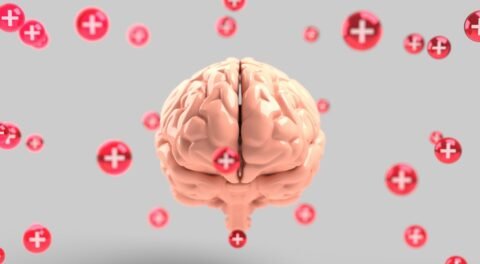Addiction is a complex issue that affects millions. It’s not just about physical dependency, but also emotional and mental struggles. Overcoming addiction requires more than just willpower; it demands a holistic approach. Mindfulness has proven to be a powerful tool in this process. Mindfulness is about awareness and presence. It’s about being fully engaged in the moment, without judgment. Let’s explore how mindfulness helps in overcoming addiction.
Mindfulness and Its Power
Mindfulness is the practice of paying attention. It involves noticing thoughts, emotions, and sensations without reacting. Instead of pushing away negative emotions, mindfulness encourages observing them. This creates a space between stimulus and reaction. In addition, this space is vital. People often react impulsively to triggers. Mindfulness helps to break that impulsive cycle. By practicing mindfulness, one learns to respond, not react. This simple shift can make all the difference in recovery.
Reduces Stress and Anxiety
Stress and anxiety are common triggers for addiction. Many people use substances to cope with these feelings. Mindfulness helps by teaching individuals how to manage their emotions. It brings awareness to the present moment, reducing worries about the past or future. Through regular mindfulness practice, people can stay calm. This reduces the need to numb emotional pain with substances. Over time, this leads to healthier coping mechanisms.
Promotes Emotional Regulation
Addiction often involves intense emotions. People may turn to substances to avoid feelings like sadness, anger, or frustration. Mindfulness helps to process these emotions in a healthy way. It encourages people to observe their emotions without judgment. This means not labeling feelings as good or bad. Instead, mindfulness teaches acceptance of emotions. With regular practice, individuals can better regulate their emotional responses. This leads to a more balanced emotional state.
Building Awareness of Triggers
A crucial part of overcoming addiction is identifying triggers. Triggers are situations or emotions that lead to cravings or substance use. Mindfulness helps people become more aware of these triggers. Through mindfulness, individuals develop a deeper awareness of their environment, thoughts, and feelings. This awareness allows people to recognize when they’re being triggered. Once identified, they can take steps to avoid or manage these triggers more effectively.
Helps to Break Habitual Patterns
Addiction often becomes a deeply ingrained habit. Over time, people develop automatic responses to stress, pain, or discomfort. These responses often involve substance use. Mindfulness interrupts these automatic patterns. It encourages people to pause and reflect before acting. This pause gives individuals the opportunity to choose a different response. With regular practice, mindfulness helps rewire the brain. It supports the creation of new, healthier habits that replace old, destructive ones.
Strengthens Self-Compassion
One of the biggest challenges in overcoming addiction is the feeling of shame or guilt. Many individuals struggling with addiction have negative self-perceptions. They may feel unworthy or powerless. Mindfulness promotes self-compassion. Instead of criticizing oneself, mindfulness encourages treating oneself with kindness. It allows people to acknowledge their mistakes without harsh judgment. This shift in mindset fosters a healthier relationship with oneself. It helps people see their worth, which is crucial in recovery.
Enhances Focus and Clarity
Addiction clouds the mind and makes it difficult to think clearly. Mindfulness helps to clear that mental fog. It improves focus and clarity by training the mind to stay present. When individuals practice mindfulness, they become more aware of their thoughts. This awareness allows them to gain better control over their decisions. In recovery, this means making choices that align with long-term goals, not momentary desires.
Improves Self-Awareness
Self-awareness is essential for growth and healing. Mindfulness allows individuals to observe their thoughts and behaviors without judgment. This awareness is critical in recovery. It helps individuals identify patterns, both healthy and unhealthy. With mindfulness, people learn to recognize when they are slipping into old behaviors. This self-awareness serves as an early warning system. It gives individuals the chance to correct their course before relapsing.
Supports Long-Term Recovery
Mindfulness is not just for the early stages of recovery; it’s valuable throughout the entire process. Recovery is a lifelong journey, and mindfulness supports sustained healing. By practicing mindfulness daily, individuals stay grounded in the present moment. This ongoing practice reinforces the lessons learned during recovery. It helps individuals remain focused on their goals and values. It also prevents the mind from drifting back into old habits.
Creates a Sense of Belonging
Many people struggling with addiction feel isolated or disconnected. Mindfulness helps foster a sense of connection. By cultivating self-awareness and self-compassion, individuals develop a stronger sense of belonging. It encourages empathy and understanding, not only for oneself but also for others. This shift in mindset fosters healthier relationships, which is vital in recovery. Supportive relationships are one of the strongest factors in preventing relapse.
Support Groups
Mindfulness-Based Relapse Prevention (MBRP) is a therapeutic approach that incorporates mindfulness into addiction treatment. It helps individuals recognize and deal with cravings, emotions, and triggers in a constructive way. MBRP combines mindfulness practices with traditional relapse prevention strategies. It has shown great success in helping people maintain long-term sobriety. Support groups also use mindfulness techniques to help members stay engaged in recovery. These practices build a community of individuals who support each other’s healing.
Conclusion
Mindfulness plays a crucial role in overcoming addiction. It helps reduce stress, regulate emotions, and build self-awareness. It promotes healthier responses to triggers and cravings. By practicing mindfulness, individuals can break free from the cycle of addiction. It also supports long-term recovery by reinforcing positive habits and self-compassion. With mindfulness, recovery becomes not just a process, but a way of life. Mindfulness empowers individuals to take control of their lives, one moment at a time.
Passionate content writer and savvy blog publisher, Aamir crafts compelling stories and insightful articles that captivate and inform. With a knack for blending creativity and strategy, they bring fresh perspectives to every piece. Dive into their world of words and discover content that resonates.





